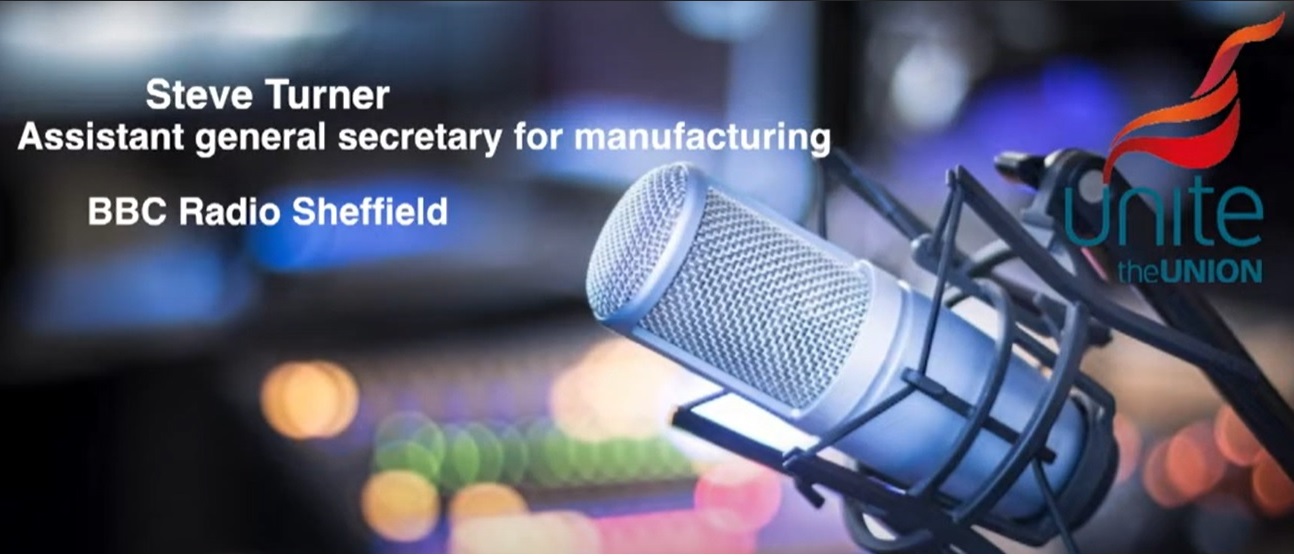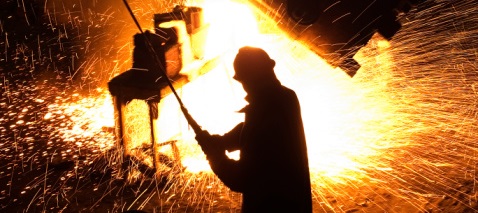Govt steel support shift?
The government hinted that part-nationalisation of Tata’s UK operations now up for sale could be a possibility as a buyer is being sought.
Business secretary Sajid Javid said yesterday (April 11) in a House of Commons statement on the steel industry that the government would look at “co-investing” alongside a future buyer – which could mean that the government may take an equity stake in the business.
Javid did not elucidate precisely what he meant by the term â€co-invest’ but when asked to clarify he said, “I’ve said that to demonstrate that when we say we will look at all the options, we really will look at all options.
“It’s possible someone might come forward and ask for funds from government in lots of different ways,” Javid added but emphasised that the funding would have to “be on commercial terms”.
Clarity call
Labour MP for Aberavon Stephen Kinnock, whose constituency covers the Port Talbot steelworks, demanded that the government come clean about what action, precisely, it is prepared to take.
“Sajid Javid’s out-of-the-blue reference to ‘co-investment’ in the chamber yesterday is further evidence of the fact that this shambolic Government is making policy on the hoof,” he said.
“It is high time that Mr Javid makes a clear and comprehensive written statement, explaining what the government is or is not prepared to do, in terms of intervention,” Kinnock added.
“The continued speculation and uncertainty is not helpful to the sales process.”
Javid also highlighted yesterday that Tata Steel executives had told him in confidence of their intentions to completely close down its UK business instead of selling, but that the government convinced the company to reconsider.
Shadow business secretary Angela Eagle however, hit back at the business secretary, arguing that Tata Steel’s decision to wait for a buyer should not be credited to Javid’s supposed interventions but instead was thanks to “the hard work of the steel unions and the plant management”.
In an editorial in the Guardian yesterday (April 11), Eagle outlined why business secretary Javid was not up to the job of seeing the steel industry through troubled waters as it attempts charting a course back to success.
“The government should be working in partnership with the workforce and their unions on a way forward,” she wrote. “But the business secretary refused even to meet with the unions until the eleventh hour.
“This is unsurprising from a man whose first legislative priority was a wholly unnecessary and backward-looking antitrade union bill which seeks to destroy the very organisations created to protect the interests of employees at work.”
Emergency debate
Eagle last night secured an emergency debate in the House of Commons today (April 12) – MPs are now discussing the steel crisis this afternoon.
Unite assistant general secretary Tony Burke argued that the Javid’s comment on co-investment marked a significant shift in the business secretary’s approach to steel.
“Just days ago Javid completely ruled out anything having to do with direct government intervention and now, while not using the words explicitly, has suggested the possibility of part-nationalisation,” he said.
“The penny appears to have dropped that there should be an active government supporting steel and manufacturing as the best hope of securing the future of the industry.”
Still, Burke said that the business secretary had been very vague when he had said the government was prepared to co-invest alongside a potential buyer.
“We look forward to sitting down with secretary of state to hear more of his plans for co-investment.”
Union pressure
Burke emphasised that the business secretary’s shift in attitude was a direct result of union campaigning that’s brought the steel crisis to the forefront of the public agenda.
“Unite has been especially effective in pressuring the government to intervene,” he said. “The business secretary obviously didn’t want to go to Europe earlier this year to the summit on steel but thanks to Unite piling on the pressure, he caved.”
Burke went on to say that continued pressure in conjunction with other steel unions, with the public and with like-minded politicians will be what’s needed to see Britain through the steel crisis it now faces.
“Unite is still calling on the government to agree to scrap the lesser duty rule, which is holding us back from taking effective action against dumping of cheap Chinese imports through substantial tariffs,” he said.
“We will moreover hold both the government and Tata to account in their commitments in finding a reputable buyer whose central concern is the long-term future of the industry,” Burke added.
“For steel’s future to be assured, this means selling the Tata sites as one single entity – each part is interconnected and to allow investors to cherry-pick could be just as detrimental to the industry as allowing the sites to shut down.”
After Tata’s Long Products Division successfully secured a buyer yesterday (April 11), saving more than 4,000 jobs in the process, Burke offered the occasion as a prime example of unions and workers fighting for their future – and winning.
“Our members and reps in Scunthorpe deserve our unreserved congratulations,” he said. “This deal was a direct outcome of hard work and skilful negotiation. We look forward to working with new owners Greybull and the return of â€British Steel’.”
“As long as we work together, there’s no reason that we can’t achieve the same victory for the rest of Tata’s UK operations.”
Watch the full emergency debate on steel here.
 Like
Like Follow
Follow


